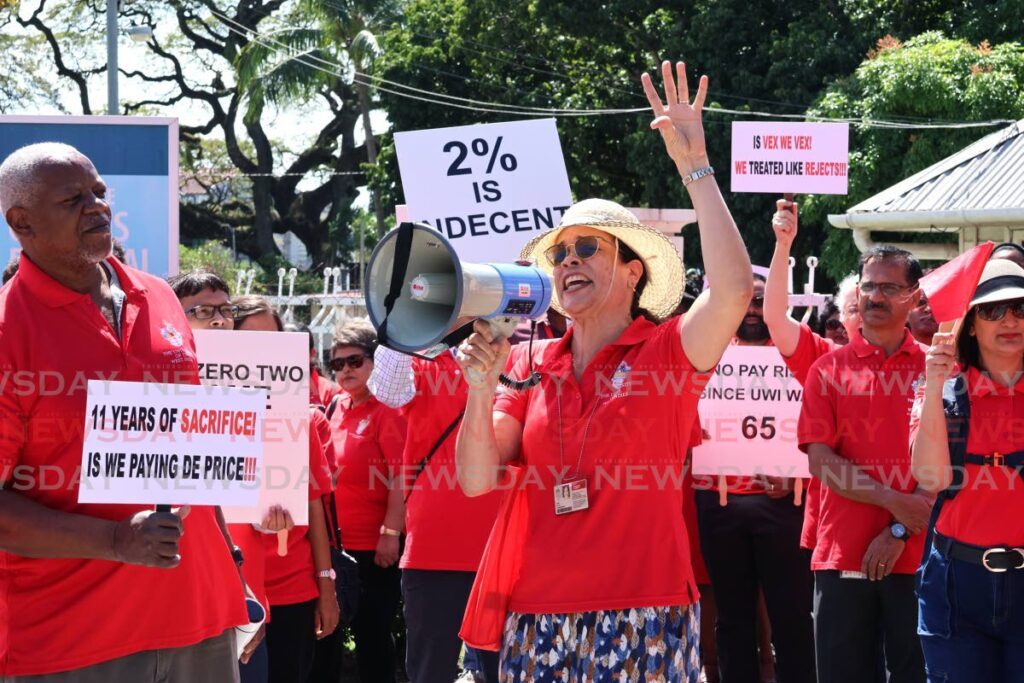Gambling with education

Education is basically a business. A highly competitive one, like other forms of energy – you got that right, as intellectual energy is what it produces and sells.
At the tertiary level, intellectual energy is produced and sold in an internationally competitive market. Parents and business executives are approached annually by articulate and highly persuasive sales representatives from countries around the world, tempting them to send their brightest and best to be trained.
This is not new. Long before UWI, and before that, the world-renowned and highly respected Imperial College of Tropical Agriculture, families who could afford it sent their sons abroad to be educated. Most of the men who became lawyers and politicians – the Warners, Phillips, Gordons, de Verteuils, Lazaars, Woodings, De Limas, the hyphenated Smiths, virtually all the financially successful agricultural families from the English, French, Spanish and German communities – did so.
This eventually became impractical, increasing class and racial resentment. Out of necessity, with crop failures and forex shortages in the late 18th and 19th centuries, inevitably local universities were established, with law faculties. I gather it was less expensive than sending aspiring lawyers abroad, as highly qualified refugees fled war zones in Europe to accept academic positions here.
In the history of industrial relations in TT, strikes and protests in the education industry have not been unusual. Nor have they been without political, commercial, cultural and social consequences.
As an industry, education may have had deeper and more far-reaching consequences on human development than any other aspect of life.
Despite rumours to the contrary, logic thus illustrates that education is the oldest profession, which all the others are founded on.
So you may wonder, what are the consequences to the nation of the protests and the threatened/ actual strikes at UWI that feature in the media weekly?
Well, to start with, among those who are protesting are the teachers right at the start of their careers, which may not be a bad thing, for example, for building skills in rebellion against outdated notions of the need to follow long-failed procedures.
Also joining the UWI protests are the students, so that they can submit the results of their already written and, hopefully, marked exams in order to know whether they have qualified to move up a step. This is most vital to those needing bursaries or scholarships, which cannot even be applied for without exam results.
Despite what Dr Williams hoped, even the most brilliant of students still have to pay to attain the knowledge and skills clearly identified as essential to build the nation. They need the funding to pay mandatory fees so that the university can, in turn, pay teaching staff whose salaries have not increased for 13 years.
Up until today, junior staff have not stopped teaching classes or marking tests, although their union has encouraged them to do so.
Most teachers keep teaching essential science, technology, management and STEM-related (science, technology, engineering and maths) subjects.
New STEM disciplines have to be added to keep them current and marketable.
Once again, as in previous years, the tests have been marked by sympathetic teachers, but the students have not received the marks so they can be submitted on time.
I once accompanied a trade-union colleague to a very fancy casino in Divonne, just a few kilometres across the border from Geneva, where we were attending an ILO conference.
He learned that I had never gambled before, which he said was essential to my education, so he gave me a pile of chips, introduced me to a croupier and said, "Go ahead. I'll check you back later."
The croupier taught me the rules of a game called roulette, which was great fun. I kept winning, and when I collected another pile of chips for winning, my colleague would come back and scoop them up, leaving me with a few to start again. While the wheel spun, the croupier kept chanting: "Round and round,/There she goes/Where she stops/Nobody knows."
I thought of that game when I read the newspapers, reading yet again another threat, another protest shutting down classes at UWI and holding back students’ marks.
What were the players hoping to win? Day after day, the arguments went round and round, and nobody knows where it is going to end up – because the key player is not at the table.
The only one that has the resources to win for the development of the nation and its future, or the power to effect the future envisioned by Dr Williams and the pioneers who set up the game, is the government, and it is not playing.

Comments
"Gambling with education"